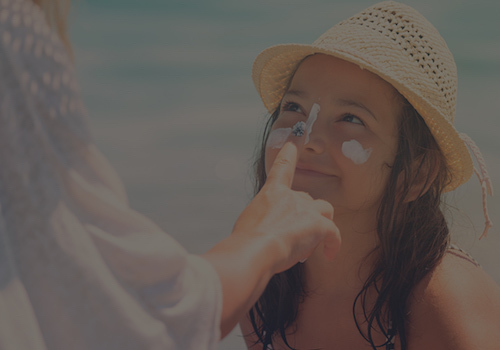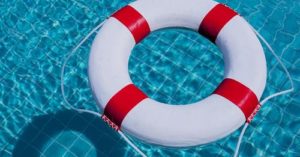Monthly Archives: May 2023
Sun Safety Tips for Au Pairs from Macroni Kids

Everyone loves summer, especially children.
But while you’re planning some family fun in the sun, be sure to make safety a top priority. Accidents are the leading cause of death for children ages 1 to 4 in the United States, and the summer months bring with them a unique set of risks.
Keep reading for 5 tips to keep your kids safe this summer.
#1: BE SMART WITH SUN SAFETY FOR KIDS
Sunburn, dehydration and sun or heat stroke are among the hot-weather risks parents need to be aware of when young children are playing outside.
- Sunburn. Apply sunscreen with an SPF of 15 or above, at least 30 minutes before letting children go outside.
- Reapply every 2 hours, or after swimming or sweating.
- The sun’s UV rays can penetrate clouds, so you still need protection on overcast days.
- Have kids wear protective gear, such as sunglasses with UV protection, a hat and tight-knit cotton clothing.
- Dehydration. Provide plenty of water when kids are engaged in outdoor activities, and avoid sugary or caffeinated drinks.
- Sun or heat stroke. Plan outdoor activities for earlier in the morning or later in the afternoon when possible. It’s safest to stay indoors between 10 a.m. and 4 p.m., when the sun’s rays are at their strongest.
Babies are at greater risk from excessive sun exposure. Protect your infant with lightweight clothes with long sleeves and legs, a wide-brimmed hat, and a lightweight blanket. Apply baby sunscreen, and choose a stroller with a large canopy to shield those harmful rays.
#2: COOL OFF WITH WATER SAFETY FOR KIDS
According to the Centers for Disease Control and Prevention, drowning is the leading cause of injury death for children ages 1 to 4 in the U.S., and over half of all drownings occur in the summer.
Adult supervision and other water safety habits are essential, whether you’re planning a trip to the beach, a day at the lake or just an afternoon splash in the neighborhood pool.
- We really cannot emphasize this enough: there is no substitute for adult supervision. Never let children swim without an adult or lifeguard on duty.
- Inflatable swimming aids such as “floaties” provide a false sense of security. Keep young children within arm’s reach at all times while in or near water.
- Never leave children unattended at the pool for any reason — that includes turning your head to answer the phone, read a book or converse with other adults.
- Likewise, never leave children unattended in a hot tub.
- Obey all posted rules at public pools or other swimming areas — especially those pertaining to running and horseplay. Keep wheeled toys away from the water’s edge. Observe all diving rules.
- If you have a pool at home, keep it securely covered when not in use, and protect it with a childproof fence and locking gate. Don’t allow diving from the side of the pool. A hot tub should have a locking lid.
- Learn CPR and other First Aid so you’re prepared in the event of an accident.
- Children must wear a properly-fitting life jacket at all times while riding on a boat, and adults must never consume alcohol while operating a boat.
#3: PREVENT INJURIES WITH PLAYGROUND, CAR AND BIKE SAFETY
Summertime brings with it road trips and lots of outdoor adventures. Don’t let all those fun outings end in tragedy or a trip to the hospital.
- Car safety for kids. Never let kids ride in the cargo areas of pickup trucks or vans. Children under 12 should ride in the back seat, and be properly restrained in an appropriate child safety seat for their height and weight.
- NEVER leave children in a parked car, even for a few minutes. In Georgia heat, it only takes a few minutes for children to die in a car. “Look before you Lock”— what is in the backseat!
- Bike safety. Bicyclists of all ages, including kids, must wear a properly fitting helmet while riding a bike. Make sure your child’s bike is the right size, and teach him or her to obey all traffic rules while riding.
- Playground safety. As with other summertime activities, kids should always have adult supervision when having fun on the playground.
- Equipment should be firmly anchored and well-maintained. There should be shock-absorbing material such as rubber, gravel or wood chips, and equipment should be installed at least 6” from fences or sidewalks.
- Avoid clothing or accessories that could cause strangulation. These include drawstrings, necklaces or loose-fitting garments.
#4: BE CAREFUL WITH POISON IVY
Poison ivy, poison oak and poison sumac all contain urushiol, a rash-causing substance that produces an allergic reaction in 60-80% of all people.
You don’t even have to touch the plant to be affected. Urushiol can be transferred by touching another person or an article of clothing that has been in contact with an offending plant. If can also be inhaled if a poison ivy plant is burned.
You can reduce the risk to you and your kids by:
Learning to identify poison ivy, poison oak and poison sumac leaves
- Avoiding outdoor areas where you know poison ivy is present
- Wearing long sleeves and pants in areas where poison ivy may be present
- Washing skin as quickly as possible if exposure occurs
- Bathing and washing clothes after time outdoors
- Bathing pets who may have been exposed
Symptoms of poison ivy exposure include red, itchy, swollen skin and blisters.
- Call a doctor if your child develops a fever or any type of rash.
- The rash typically takes 1-2 weeks to heal.
- Treatment includes cool showers and soothing lotion to calm the skin.
- If your child has a severe reaction, your doctor may prescribe pills or creams to promote healing.
#5: WATCH FOR TICK BITES
Always check for ticks after you or your kids have been outdoors during the summertime. Removing the tick as quickly as possible reduces the risk of tick-borne illness such as Lyme disease.
- Don’t use petroleum jelly or a hot match. These don’t work and may cause the tick to burrow even deeper into the skin.
- Remove the tick using the following steps:
- Use tweezers to grasp the tick as close to the skin as possible.
- Pull firmly and steadily until the tick is removed.
- Don’t twist or rotate the tick.
- If part of the tick stays in, it will eventually come out on its own.
- Gently wash the affected area with soap and water.
- Call your pediatrician. He or she may prescribe antibiotics if your child is at risk of Lyme disease.
- Pay attention for symptoms of Lyme disease. Early treatment is crucial for long-term recovery.
- Red ringed rash around the affected area
- Red or irritated skin
- Flu-like symptoms
- Painful or swollen joints
- Facial paralysis
See full article at
Top 10 Tips – Host Family Guide to a Successful Vacation with your Au Pair.
Top 10 Tips – Host Family Guide to a Successful Working Vacation with your Au Pair.
As a host family, it is great to have your Au Pair along on a vacation. However, there are pitfalls that can happen One of the biggest issues is the danger that can be involved when no-one is clear about whose job it is to oversee the kids.
Here are 10 Tips for Vacationing with your Au Pair so that everyone has a great time, and the kids are safe!
- Tag, your it! I had a host family with 3 small children tell me that when it was the au pair’s turn to be
responsible for the children (and vice versa) they would tap hands so that there was no
misunderstanding who was in charge. What a great idea! - Yes, a schedule is needed! A few summers ago, I received 2 calls on the same day. One was from a host mother saying that they just returned from vacation and their Au Pair did not work at all and one was from the Au Pair in this family saying she worked all day every day! How interesting is that? Be sure to give your Au Pair a schedule of when she is working so that she knows when she is off – just like home. It is important for her to know when she can go relax at the beach – without having to ask if she is free. Make a tentative schedule and discuss your expectations ahead of the vacation. It is always possible to readjust when you are there.
- Travel time/Work time?
Do you consider travel time to be your au pair’s work time, or can she put her earbuds in and take a nap? This is something you want to define ahead of time. - Lazy days! Vacation can bring different behaviors from children – especially children that
will not do well when there is no routine. Talk to your Au Pair about your children and the things you found have worked on past vacations. If you like to have a routine on vacation let her know that, too. - Pool Safety! If vacationing at the beach or around a pool be sure to talk to your Au Pair about
how long they can stay at the pool, how often should sunscreen be reapplied, do you want your Au Pair in the water or is it okay to sit on the side of the pool? Please do not assume your au pair knows your expectations. - Who is the Boss?
Often summer vacation includes extended family. Can Grandma and Grandpa change the
schedule for the day? Make sure your Au Pair knows who gives her responsibilities for the day and communicate that to all parties involved. - Where did all these kids come from?!
Are you vacationing with your kids, your brother’s kids, and your sister’s kids, and do they expect your Au Pair to watch them, too? The Au pair can decide that this is too much for her. If playdates during the trip will be arranged, parents may need to assist the Au pair with childcare during times with large numbers of kids, especially around water. - Traveling internationally?
The DS-2019 form must be signed for any international travel ( if to the Au pair’s home country). This process takes 3-4 weeks. See the Travel Validation form on our blog for how to do this. Plan ahead! It is the Aupair and Host family’s responsibility to research what visa will be needed to enter the country you will be traveling to. Any costs related to a delayed return to the USA are not paid by APIA. - Roomies? Will your Au Pair have a private space on vacation? Make sure you discuss ahead of time what the accommodations will be on the trip so that you eliminate any surprises (your Au pair should have a private bedroom).
- Safety First!
Communication with your Au Pair is paramount on vacation. When you are all in unfamiliar
surroundings with different schedules and different expectations – things can go wrong. Be sure that the safety of your children is number one in everyone’s mind. Take a tour of your surroundings and discuss any concerning issues. Making sure everyone knows whose turn it is to watch for the kids and what they are watching out for. These tips can ensure a successful vacation with memories to last!



